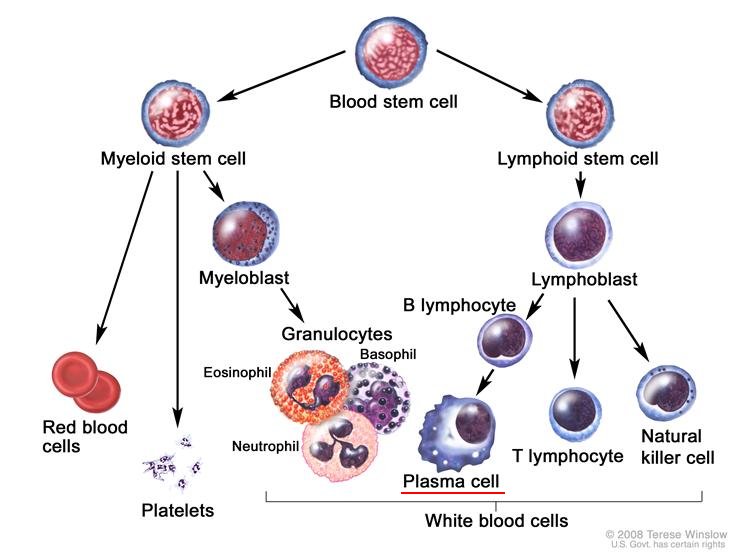| There is controversy about
whether newly diagnosed patients should receive conventional
chemotherapy or high dose chemotherapy (i.e. bone marrow transplant) the
NCI makes the following observations:
Chemotherapy prolongs the
survival of patients with symptomatic myeloma to a median of 40 to
46 months for patients with stage I disease, 35 to 40 months for patients with stage II
disease, and 24 to 30 months for patients with stage III disease. A
well-tolerated chemotherapy regimen producing consistent results is melphalan and
prednisone (MP). Other regimens appear to produce similar survival outcomes. The
Intergroupe Francais du Myelome randomized 200 previously untreated myeloma patients under
65 years of age to treatment with conventional chemotherapy versus high-dose therapy. Survival and disease-free survival were significantly improved in the
high-dose arm (the estimated 5-year survival was 52% versus 12%; the estimated 5-year
event-free survival was 28% versus 10%). Relapses, however, continue to occur at a
constant rate, so that at 5 years, only 28% of those receiving high-dose therapy, and 10%
of those on conventional chemotherapy have not relapsed. Event-free survival is
significantly better for the high-dose group but there is no sign
of a slowing in the relapse rate, or a plateau, to suggest that any of these patients have
been cured. While this study suggests that myeloablative therapy with
autologous transplant may prolong survival for patients with multiple myeloma, the finding
requires confirmation by the current ongoing intergroup study comparing standard therapy
to high-dose options. Also see NCCN position on the role for marrow transplant therapy. |
|

